In the aftermath of a long war, a man in Iran searches for meaning, hopes for love, and struggles with the story of a whale.
On the third day the kid who had made it down that vicious slope with Ebadi still wanted to live. He didn’t want to risk his life to see if the vine growing on the other side of the stream had any grapes left to eat. The night before, Ebadi had tried the crossing himself. It had been difficult for him. His ankles were twisted from the flight down the hill and his injured left wrist had begun to go bad. Nevertheless, he’d scrambled in pain and gotten within twenty yards of the stream before enemy flares lighted the plain and forced him to hurry back beneath the canopy of trees. It was a waste this. They had taken Hill 2319 from the enemy only to have it retaken from them. It would go back and forth like that for a few years more. And for a few years more Ebadi would wonder quietly to himself just what the point of Hill 2319 had been.
Maybe the point had been water. Once in a while in those days there had been too much water. Most of the time there was not enough. He liked rain and he was starting to not like the university. And sitting now in a classroom recalling the 11 days of hiding in those woods as a fighting volunteer during the summer of 1983, he stopped paying attention to the professor, opened his pocket Qur’an and read the words he knew by heart: Do men think it suffices to say they are true believers? Do they imagine they will not be tested beyond this?
Ebadi shut the book and briefly studied the woman who was lecturing in the unpainted university hall. She’d been talking about water these past four sessions. She had a vigor to her walk that put him ill at ease. She was passionate. That was what it was. She was passionate about the story of a few men who chase a whale across the high seas. He didn’t like the title Moby Dick. He didn’t like much about the book. After a promising beginning everything about it spoke of waste to him.
Hill 2319 had been a waste. That was not a thought he had ever dared share with anyone. All they’d done was buy themselves 48 hours of looking down at the Iraqi forward positions. Which meant nothing. So what if they were looking down at the other side’s forward positions? To hold 2319 they had to have 2320 and 2318 as well. Ebadi considered those numbers in his head and just briefly became disoriented. He fidgeted. He wanted the woman to stop forever. During her second lecture on Moby Dick, she’d told them that water happened to be a symbol of death. She seemed to be inviting the students to disagree with her. How could water be death when a drop of it on 2319 could have saved a man’s life for another hour? And an hour mattered. Even five minutes could make a difference. Ebadi saw himself getting up from his seat to shout a few things at her. What would he say? For starters, he could not say for sure if the two other hills surrounding 2319 had actually been 2320 and 2318. Chances were they weren’t, but the numbers made sense. Numbers, too, were infinite — in the way that water was when there was too much of it and even when there wasn’t enough. He recalled how brother Samanpur, who’d been the commander in charge of holding 2319, had given him the last flask of water he could scrounge and instructed him to give only a few drops of it once an hour to their wounded. It wasn’t a good idea, because even a few drops on a man’s parched lips made him cry for more water. But Ebadi had done what he was told and stuck to his task. Brother Samanpur had made it clear not to even consider reopening the flask of water before a full sixty minutes were up.
Later, when Ebadi saw that he and the kid were the only ones to get away from 2319 alive, he would have plenty of time to consider this fascination he carried for numbers: 11 days, for instance, until the counterattack that wouldn’t save brother Samanpur finally came. Seven out of those 11 days Ebadi had watched and kept count while the kid cried desperately to each sunset. The kid would cry, then wait until it was fully dark before he’d come over to ask Ebadi if he thought it was finally time to risk crossing the open plain. But there was even more to these numbers: 48 hours that their platoon had been tasked to hold 2319. Sixty-three hours that they’d actually held it. His wrist was beginning to smell on day three. After the rescue, the doctors in the rear had looked at his hand in disbelief telling him that a wound as old as that should have surely required amputation. He’d sat there and listened while they spoke of how this must be some kind of world record. Eleven days! And he had wanted to tell them that no, it was actually 14 days, because he’d received the wound soon after they’d captured 2319. So that made it 11 days plus 63 hours.
The numbers churned a bit more in Ebadi’s head while the woman said something about how the class really ought to improve their English reading skills if they wanted to understand the novel better. It wasn’t her fault if some of them were having trouble. This was a college course in literature and not a language course, she said.
Ebadi kept his head down. There were nine and a half minutes left before class was over. He wouldn’t come back here. He’d just decided that. During those 11 days at the foot of 2319, he’d more or less wrestled with the same idea of returning to the war or not returning. If he lived, would he go back to being an engineering student or would he stick around until the war was finished? He’d had more than enough time to think about this. Every morning the Iraqis who were enjoying the higher ground again would lob a few mortars into the valley just to show the stragglers hiding below who was boss. None of the enemy soldiers ventured down though. They didn’t have to. Why risk getting shot at when they could just keep lobbing mortars? Ebadi remembered the smile on the kid’s face the first time he’d run back from the stream cradling a shirt full of grape leaves. There were no grapes, but the sour leaves themselves were edible even if they gave you the worst cramps in the world. And after the kid had cried to enough sunsets and after Ebadi had considered having a good cry himself because of the constant pain in his stomach and the discovery of the fly eggs hatching in his wrist, he’d called the kid over one night and reminded him of the Patience of Job and recited the lines he’d repeated to himself ever since — Do men think it suffices to say they are true believers? Do they imagine they will not be tested beyond this?
“Patience is not something we can buy down the street,” he’d told the kid with as meaningful a voice as he could muster, all the time trying not to think too much about the eggs hatching in his wrist. Then he’d walked carelessly under the moonlight where he might have been shot easily and vowed to forget about engineering school until he’d seen to the war’s end. But that had been ten years ago and the war was over and he was no longer an engineering student and he cared neither about Moby Dick nor the teacher teaching it.
He stole a quick glance at the class. The college was a recent campus more than an hour’s drive from Tehran. On the first day of class there had been piles of yellow bricks sitting at the back of almost every room. But then each day that passed there would be fewer bricks. Somebody was stealing those bricks. In the meantime, most of the buildings remained only half done and people said the college had run out of money and couldn’t complete the project. Even the college’s dormitories were still back in Tehran. Ebadi slept there, sharing a room with three other students at least a decade younger than himself. He hardly ever spoke to them and at night when he lay in bed and asked himself why he was here studying what he was studying, he’d remind himself that he didn’t deserve not to be here. Meaning, he deserved not to be back home in Qom where he still had to look in his father’s eyes and try to explain why he’d given up on engineering. Why? Because with numbers you could still dream, with strict formulas and textbooks you couldn’t. But he’d never told that to anyone — the same way he’d never told anyone that he thought 2319 had been a waste of time and lives. He didn’t say much, period. After 2319 there would be other hills to take and lose. But Ebadi had never talked like he’d talked to the kid during those 11 days and nights. He’d never told anyone about patience again. He’d never tried to dispense more wisdom.
And yet, the trouble was that back home everyone wanted him to talk. More than anything they wanted him to get married. His father said there were at least 20 suitable girls around, and all that his one and only son had to do was stop moping and start living. You didn’t make a life and settle down by sitting in your room taking correspondence courses in a foreign language. Either he had to get married and start helping out his father at the bakery or he had to leave. Ebadi had chosen to leave. He’d retaken the college entrance exams, and although he hadn’t scored high enough for math he’d received a scholarship to study English.
He’d jumped at the offer.
Maybe the jump had been too hasty. Maybe he’d made a mistake.
He heard the sound of English. It still amazed him that he could sit in a college course and comprehend English being read aloud. With some of the easier books he didn’t even have to look at the page to understand the text. He knew he’d been diligent with his correspondence course, yet he’d never imagined it could lead him to the real thing. He tried to focus now and let his thoughts stay fixed in the other language. The voice that was reading was soft and deliberate. It paused often, carefully taking in the dips and peaks of a style none of them had encountered before. The voice belonged to a female student sitting behind Ebadi. The professor never asked the men to read. Just one time in the beginning of the semester she’d asked one of the guys who sat in the front row, but he’d just looked dully at her for a second and then quickly walked out. Later, Ebadi had heard that the fellow wasn’t a student at all, but one of the college “watchers” sent to make sure the young, foreign educated professor wasn’t offering the class anything obscene. Maybe the professor had felt something and wanted to confront the man about it. But after that one time she’d never bothered calling on any of the men to read again. Besides, unlike engineering, in literature courses women were in the majority. They were mostly the same age as his roommates. And what he’d noticed about these women was how anxious they were to let their hijab slide back as soon as they stepped outside campus. They colored their hair. That was what they did. They colored everything. Theirs was a world of colors, Ebadi thought. And they feared nothing and they laughed at him. Early in the semester he’d overheard them practicing their English by talking about him. Why was he in the English Department at all? He must be part of the quota system for the stupid war vets and the families of the martyrs. He probably couldn’t understand a word of the language. He should trim his beard. That was what he should do. His beard must have fleas in it. Did anyone know what was wrong with his arm? Why did he hold a pen like a robot?
Was it for them, then, that his platoon had taken 2319 and then lost it? They talked about him as if he were not even there to hear them. They were so sure he would not be able to understand what they said. Was it for them he had broken some kind of record with his wrist so that now they could say he held his pen strangely? At least he had both his hands still, which was more than he could say for Captain Ahab in Moby Dick. That man had had only one leg and he was a fool for going after the white whale. He would have been a fool even if he’d had both his legs. As for these women, Ebadi was sure that none of them knew about real suffering. They weren’t like the good nurses who had taken care of him after 2319. The women here, they just liked to read about suffering. They liked to see pictures of it. How could pictures ever tell the story of 2319? It was like trying to tell someone how to hunt a whale when they’d never even dipped their little toe in the sea.
Forty minutes after the class was over, Ebadi was still standing at the very end of the line of people waiting to catch the mini-buses headed for Tehran. There had been some snow and now it was drizzling lightly. A cold afternoon. People, gray and unsmiling, jostling each other every time a bus arrived. Students, Afghan construction workers, women biting hard at the tops of their black chadors so as to free a hand for their kids — they all wanted a seat on the bus. Ebadi wasn’t in the mood to fight for a seat. His wrist always hurt more in damp weather and he didn’t want to aggravate it. He started to walk. He could always get one of those cramped, overpriced private cabs further up the road and throw away his dinner money on getting a ride back to the dormitory. He’d do it. He’d do it as long as he didn’t have to run into any of those faces from the school’s War Veterans’ Student Association. They acted funny around him lately, those guys did. They didn’t mock him like the girls in his class did, but they probably thought of him as some kind of deserter for having stopped coming to their Thursday night meetings. What was the point of those meetings anyway? The war was over. The war was over and he was no deserter. He knew that for sure and 2319 proved it. Even on that eighth or ninth night out there in the wilds of Kurdistan when the kid had had another outburst — asking Ebadi if the fact that they had left their positions while everyone else was dead meant they were deserters and not going to heaven anymore — even then Ebadi had known and insisted that he and the kid were no deserters. Because, well, because what good would it have done to stay on the hill and die next to brother Samanpur’s already stiffening body? Wouldn’t that be like suicide? And wasn’t killing yourself the surest way to miss going to heaven? No, he’d reminded the kid they’d been absolutely right to take their chances away from 2319. Their test wasn’t to stay and die, it was to live and suffer as they were doing.
“Just think of how brother Samanpur is surrounded with all the good things right now up there in heaven. And not just him, but Dehqan, Taleb, Rezai, all of them, they’re there because they deserve to be. And you and me, we have to earn our passage like they did. We have to stay, learn patience, suffer.” But the kid was still whimpering even as his teeth worked the grape leaves into his mouth. Now that he was suffering in earnest, he wanted to know when exactly would they become worthy of death? And who would know the difference if they simply walked away from the tree line in the morning and got themselves shot by the enemy? His words had been close to sacrilege. He was too young. Maybe not even fifteen. So even before Ebadi had attempted an answer he’d had to forgive the boy and let him calm down and finish his leaves.
He said to the kid, “Heaven is surely a closed door to cowards.”
“We would be cowards then?”
“We would. Because inviting a bullet is the easy way out.”
“Out of what?”
“Everything.”
“Everything?”
“Listen, you don’t want to take that chance and get left behind on the wrong side, you know? God keeps count. Brother Samanpur didn’t get to be where he is now by taking a bullet for free.”
“How do you know?”
“I know.”
Maybe he should have said more things to the boy that night. Vague words didn’t help so much when you were as hungry as they were.
He was hungry now and wanted to get to the dorm. He walked faster until he reached the next bus stop area. Then he stood and watched as packed taxis and mini-buses passed without stopping for him. He fingered a half-eaten apple in his backpack. Alongside it he also felt for his 125 pages of the first 250 pages of Moby Dick that the professor had made them buy from an overpriced copy place in town. Those 250 pages had cost Ebadi a small fortune, and were he to stay in the class, there would be many more pages to come. Why couldn’t she have chosen a book that was smaller, or at least one you could find somehow in Tehran so you wouldn’t have to pay for copied sheets?
He took a bite from the yellowing fruit. A small white Renault stopped for him.
The car idled some distance away. Except for the driver, who was a woman, there was no one else in it. This made Ebadi confused. Still, he slipped the apple back into his pack and approached the car.
“I hope you won’t feel too uncomfortable sitting in the front with me.” She had pushed open the passenger door and was shouting above the din of traffic to him. “Or you can sit in the back and imagine you’re being chauffeured around by a woman.”
Miss Foruzan, the Moby Dick professor. Stiffening, Ebadi got into the car. All semester she must have seen him standing here or waiting for rides. Why today? He recalled again the day she’d asked that college watcher to read in English. How uncomfortable the fellow had looked leaving her class. Now she was doing the reverse; somehow she must have figured out he wanted to drop the course and decided to give him a ride. Maybe she felt sorry for him.
“Thank you for stopping. I’m going to the city, Miss.”
“I know where you’re going. Where else would you be going?” She turned into the slowly moving traffic lane. He was gazing at the blanket of white over the mountains and imagined all that good fresh snow ending up in the lake farther up the road north. Some months back he had gone over that way and seen men water-skiing in that honest, sweet lake water. It had broken his heart to see it.
They were on the highway but the traffic was no faster than a crawl. In a minute they came upon an old vendor whose cart had turned over by the side of the road and his steaming giant soft beets had rolled out between the moving cars. Ebadi wondered how the man had gotten his cart out here into the middle of nowhere and what he would do now. The beets were getting squashed and splattered by the traffic while their owner looked off the other way. Maybe he didn’t have the heart to look at what he’d lost. The beets, once they were flattened by the tires, looked for a moment exactly like blood. Ebadi wondered what they must smell like afterwards.
She asked him, “What were you shouting about today outside class?”
He was surprised. He hadn’t really been shouting. He never shouted. He’d raised his voice a bit, that was it.
“Just a small argument between friends,” he explained.
He’d never talked to this professor before now. Yet probably because he had no other choice he was already easing as best he could into the awkward situation in the car, she driving and he letting himself be driven by the woman whose course he was planning to drop. There was no point explaining to her that the so-called friends he was shouting at were the same ones who’d given him a hard time earlier in the week about not coming to the veterans’ Thursday night meetings. But then he felt a stab of malice for all the grief Moby Dick had caused him and he went on: “They wanted to know why I’m studying English. They asked why I’m studying the devil’s language.”
“Is that what you think?”
“I told them even the devil’s language needs learning.”
“So you, too, think English is the devil’s language?”
That was exactly what he’d meant for her to understand, though he hardly believed it himself. But now he’d gone and trapped himself into having to give a straight answer to her question. If English was the devil’s language then every language was too. Language was just another code. That was what he’d been trying to explain to those guys who hounded him about the classes he was taking.
“Well?” she persisted, but he still didn’t answer. He’d only caught a brief, clear glimpse of her as he’d been getting into the car and he wouldn’t look her way again. At least her hijab hadn’t been pulled back like those of her students, and when she spoke to him her voice was firm, more like she wanted to pick a fight rather than ridicule him. Yet an hour ago in class it was he who had wanted to pick a fight. All the fight was drained out of him now. He wondered why. He didn’t want her to think he was weak. He murmured something. This time her voice was really combative, asking him if he always whispered when he talked to his professors.
“I’m not coming back to your class, Miss. That is what I have to say to you.”
“Did you decide this today or the day you came to the museum?”
Ebadi kept his eyes on the road. His face was like wood and he worked hard now to keep it that way. First she’d surprised him by stopping the car, then she’d let him know she’d overheard his argument outside class, and now she was telling him she’d seen him at the museum.
“It’s not a crime to go to a museum, Miss.”
“I didn’t say it was. I’m just wondering when exactly you decided you wouldn’t come to my class anymore.”
They were like two puppets addressing each other but keeping their faces straight ahead at an imaginary audience. Their only audience, however, was a line of slow moving traffic. Why would she think the reason he had decided not to come to class anymore was the museum? It was she herself who had told them about the new show on the photography of the war. One of the better suggestions she’d had so far. Or so he’d thought at first. He recalled her exact words, telling the students that they owed it to themselves to come see how people had fought and died and survived the war. She’d told them she was sure it was going to be one of the most important shows of the year and when a couple of her pet students had thought she was kidding and made a joke of it she’d hushed them and told them if they wanted to understand Melville, if they wanted to really understand Hemingway or some of that early 20th century British poetry they’d read at the beginning of the semester, then they needed to go see this show.
So he had gone there. Only out of curiosity he had gone. Because he knew there wasn’t a photographer in the world who could ever capture what he knew and what the kid had known. How could you explain 2319 to anyone? He’d gone because her words had stirred him to go. But then when he had gotten there and seen all those hundreds of photographs winding their way in the spiraling museum, he had felt utter blankness. Never since he had returned home had he felt so distant from the war. That wasn’t necessarily a bad thing, but it did make him feel like an impostor just then. Either he was an impostor or it was the photographs that were false. He’d gone through the whole show without running into any of the students from that class. But he had seen Professor Foruzan. She hadn’t been alone. There must have been six other people with her, men and women, all of them clearly foreigners. It looked like she was giving them a tour of the show and making herself indispensable. He’d seen her smile the way she never smiled while on campus. He’d seen her endearing herself to those people. What could she possibly know about those war photographs? Who was she to give anyone a tour about the subject? Ebadi had walked out of the place thinking she hadn’t seen him. But obviously she had. And seeing him gave her an edge now somehow; it defused his anger about the photographs and made him wonder again why he wanted to quit her class at all.
Keeping his head turned to the traffic, he said, “With all due respect Miss, I don’t see how your kind would know anything about the war.”
Because he wouldn’t look at her and because she was doing the same, it felt as if they were not just two puppets, but puppets speaking through some kind of barrier or curtain. This in fact made it easier to say things. Ebadi felt a measure of relief. He liked to follow the taillights of the traffic ahead. He waited for her reply.
“Who is my kind?” she asked.
“You were not there, were you? You were in America getting your degrees.”
“So I can’t have an interest in the war?”
“Of course you can. It’s just that … that day at the museum you looked like you knew everything.”
“Do you, Mr. Ebadi, know everything?”
“I know my share.”
“You were in the war?”
He nodded.
“Tell me about it.”
“I’m not a tourist guide, Miss.”
Then as soon as he’d said that he began to tell her everything about 2319. It started with him just saying those numbers, 2-3-1-9. When she asked what that was, he told her that that had been a hill in Kurdistan and that the two hills around it could have been 2320 and 2318 but not necessarily, no. He never once looked at Professor Foruzan, but he did tell her about the kid who cried and cried, and how towards the end he even cried in his sleep and cried when he woke up and asked for his mother. He told her about how brother Samanpur had put him in charge of water and how one of the other younger boys would follow him around when the time for water arrived hoping there would be a spill from the five drops of water he used to wet the lips of the wounded. He told her how he’d saved his arm after the cut was reopened. He’d fished for the vein himself, he said, then had the kid tie around it with the string from his prayer beads. When she asked how that was possible, he said that everything was possible when it was necessary. A vein was flexible, he said. They’d taught him that at the First Aid course at the Sanandaj military base. So he’d checked the infection by being resourceful. Everyday he’d clean the wound, then have the kid tear off a piece of bandage until they were out of bandages and had to resort to Ebadi’s own undershirt which they’d washed and let dry. He went on to tell about the grape leaves. And about the day he’d noticed his hand covered with those huge greenish flies in Kurdistan. Some of the laid eggs, it seemed, had oozed beneath the bloody cloth into the wound. Afterwards he’d passed the time delicately digging them out with a thin piece of stick while he waited for the boy to get his courage up and apply fresh cloth. He told her all the things he’d told the boy about patience, though it hadn’t done any good in the end, because on day 11 when he was woken up by another platoon sent to retake and lose 2319 he’d noticed the boy was nowhere to be found.
“Where was he?” she asked.
“In the stream, they said.”
“Alive?”
“No.”
“Do you think he did what you told him not to do? Did he go out there to get himself shot?”
“He may have. It was day 11. Our own may have shot him by mistake. But I never wanted to ask them. And they never told. I was lucky I was asleep or they may have shot me too.”
“Sleep with all that shooting around you?”
“You see, Miss, you don’t know war. After a while you’ll sleep through anything. You might even not sleep if there’s no noise.”
He could feel her consider this. Consider everything he’d said in fact. Maybe she was speechless or she was imagining the miracle of a man saving his own hand with his prayer beads.
“I kept the beads,” he said.
“And the kid?”
“What about him?”
“What was his name?”
“I don’t know.”
He could have lied and told her any name. But wouldn’t that make his whole story a lie? He’d told her all this to make a point: she shouldn’t have been taking those foreign tourists around showing them war photographs. In a way that kid, too, was just another photograph now. Ebadi had woken up one day not remembering his name. How was that possible? After his hand had healed he’d even gone and visited the kid’s people. They were small farmers who lived up in the north where water was plentiful. He’d eaten their food and slept in their home. He’d watched the mother and father weep. The brothers and sisters too. All six of them. They were a family of weepers. How could he go back now and ask the boy’s name? If only the boy had been more patient, or if only he’d been sleeping too on day 11 when 2319 had been retaken by their own.
“How can you not know his name?” she asked.
Her attention must have gone just then. There was a terrible honk and the driver in a passing blue van shouted something about women drivers.
“These things happen, Miss. But you wouldn’t understand.”
“Give me your address,” she said.
“Drop me anywhere in the city. I can take a bus from there.”
“Give me your address.”
Ebadi did.
“So,” she said, “why do you wish to drop my class?”
“Because, Miss, Captain Ahab annoys me.”
“Oh?”
She gave him a lecture. She told him that talking in riddles was not going to win him her approval. She maintained an even tone as she spoke. Whereas in class she was always animated, now she spoke with a somberness that made him fearful and deaf to the noise of the traffic around them. He froze up again, listening carefully as she talked about how literature was not here to be pleasant, and the fact that Captain Ahab annoyed him was a good thing. Ahab annoyed her too. If he didn’t, the book probably wouldn’t be worth reading as much. It was that man’s obstinacy that had doomed his ship. The reader felt it coming but could do nothing about it, except to read on.
“I’m sorry,” she said then, “I just told you how the book ends but I haven’t yet copied the whole book for the class.”
“I know the end, Miss. Everyone does.”
“So what do you think?”
“I don’t think water is death, like you said last week. It’s life. I understood that on 2319.”
“On where?”
“The hill.”
“Ah,” she said. “The hill! You haven’t read this part yet, but do you know who is the only survivor of the story in the book?”
“Ishmael, of course, the narrator. How else could he have told the story?”
“Do you know how he survives the shipwreck? He survives by holding on to a casket made for a dead man.”
“What does this have to do with water?” he asked.
“It has everything to do with it. That casket was floating on the water.”
He still disagreed. He mumbled something again. And when she told him to speak up, he told her that Captain Ahab had had a death wish.
“And so what if he did?” she shot back.
“Sometimes a man is tested. It’s God’s will. Other times a man tempts fate and must lose.”
“Mr. Ebadi, you sound like you belong at the pulpit.”
“There was no point to Ahab going after the whale, Miss. There’s no point talking about it either.”
“You could say that about every book we read. We’re studying literature here, not mathematics.”
Her words gave him pause. He became thoughtful, saying nothing. On page two of Moby Dick there was a line he had actually liked a lot — meditation and water are wedded forever. He could understand that. He agreed. He was good at recalling lines. Before the war he’d enjoyed respect in the neighborhood because he was known to know the holy book by heart. He was a good reciter too and realized that it was his study of The Book that had made him so adept at learning another language. He would learn more languages yet. English wasn’t enough. And English wasn’t the devil’s language. He wondered what the devil’s language would sound like. He had a warm feeling all of a sudden that made him draw into himself and get comfortable.
Professor Foruzan had some kind of wisdom, he had to admit. She was telling him that she could feel he was full of stories to share. He needed somebody to talk to, she said. And as they drove deep into the city and the beet sellers were followed by hawkers of flowers and cigarettes and bananas at every other red light, Ebadi began to wish the ride would not end. It dawned on him that never in his life had he been driven by a woman before and never had he been the sole passenger in a car. Never! And Professor Foruzan, barely missing a kid who was selling roses and carnations, wondered out loud why this was a nation so fixated on flowers. Ebadi had a ready answer to that. He didn’t speak though. He really did like the first few pages of Moby Dick. But only the first few pages. And with a little practice he knew he would even be able to recite not just a sentence here or there but all of the first chapter by heart. Let the most absent-minded of men be plunged in his deepest reveries — stand that man on his legs, set his feet a-going, and he will infallibly lead you to water, if water there be in all that region.
He imagined Professor Foruzan as a gigantic pair of eyes watching his every move during those days of 2319. He thought that she must live alone, spending her afternoons and evenings reading books and cooking herself strange, exotic meals from faraway places he would never get to know. He saw her taking long walks by herself up the mountain paths above Tehran. She’d have eggs and dates up there for breakfast and she’d stride down the mountain quickly, keeping to herself always, occasionally sending letters to old school friends in America or Europe, writing a poem now and then. He saw her going through the museum and seeing those pictures of the war again and thinking about him this time.
At some point he was out of her car and had managed to say his goodbye and thank you, yet his imagination would still not stop. That night his roommates did not come back until late and Ebadi lay in his bed hungry, seeing again Professor Foruzan’s eyes keeping track of him while he dabbed a few drops of water on the lips of their wounded. He saw her seeing him always and everywhere. And then Ebadi was sick. He ran a fever. He didn’t get out of bed the rest of the week and he was lucky that one of his roommates finally took pity on him and brought him some bread and cheese and gave him a cup of soup every day. The fever exhilarated him. It made him imagine he could fly. And he dreamt that Professor Foruzan would think he had drowned himself in the lake where those men had been water-skiing before. He dreamt that his death had broken her heart and she had asked the class to pay close attention because, today, she was going to tell them something about water and about a place called 2319. Thousands and thousands of mortal men fixed in ocean reveries. The class would read Moby Dick differently from then on.
As he got better, he did what he’d promised himself he would do and started to memorize the whole first chapter. Some paragraphs he took for nonsense and gave up. Others did not speak to him. Yet others did: I thought I would sail about a little and see the watery part of the world. He saw the narrator Ishmael latching on to a coffin to stay alive. And he saw the kid again dead in that stream in Kurdistan. Except he’d never seen the kid dead himself. The rescuing team had only told him about it. They’d been in a hurry and couldn’t pick the kid up. He’d asked them if they’d seen a boy, about 14 or 15, and they said that they had, they’d found him in the stream, dead not too long. But they had to go in the opposite direction from the stream and couldn’t lift him. Ebadi was too weak by then to walk by himself. That was it. He’d never seen the kid again and so he couldn’t imagine Professor Foruzan seeing him see the boy.
In the rear, the nurses had been especially nice to him. He had called home and spoken to his father who’d said he’d sacrifice a lamb for his safe return. Then the doctors had told him how his wrist was a miracle and that Ebadi should feel grateful for the rest of his life.
Ebadi was grateful to the roommate who brought him food, a 20-year-old kid who had gotten accepted into the Economics program and hated the subject. On Friday when the kid brought Ebadi the final bowl of soup and bread, Ebadi asked how he could repay him.
“Next time I’m practicing my dance moves here, you must stay and watch instead of cursing under your breath and storming out.”
“I will stay and watch. Thank you.”
The following day, Saturday, was the beginning of the week and Ebadi was back at school, looking thin-faced and too weak to carry his backpack with all its pages of his copy from Moby Dick. He sat in Professor Foruzan’s class and noticed that she was lecturing about parts of the book he hadn’t read yet. When he looked around he also noticed that the other students had added more pages to their copies since last week. Professor Foruzan spoke about the whiteness of the whale and she spoke of 19th century America. At the end of the class, Ebadi sat still for a while but then lost heart and began to get up as the last of the students were filing out.
“Mr. Ebadi, wait here for a minute.”
He waited.
She had so many books and papers to gather at the end of class every time. He wondered how many books she owned. Where was her house and did she or did she not write poetry? If she did, in which language?
She stood facing him. “I worried that you dropped my class, Mr. Ebadi.”
“I was very sick, Miss. But I was reading the book.”
She nodded. “That’s good. I’m glad.” Then she started to go. He had prepared for this moment. He’d practiced it like he was memorizing a part of Moby Dick or the holy book. He would ask her if she’d marry him. She would ask what made him think she wasn’t already married. He’d say that people talked. She’d say that no, she wouldn’t marry him. He wouldn’t ask why not or persist in any way. It was a lot for him to even ask that much. She would turn around at the last second and ask if this meant he was going to drop her class now and he would say no, he would stay. Then she’d ask if he’d managed to recall the kid’s name. And he’d say something that was clever and only meaningful to the two of them and no one else in the world — his name was Water, his name was 2319, call him Ishmael if you like …
Professor Foruzan turned to him looking like she was about to ask if he needed a ride again. They regarded each other.
“Will you marry me, Miss Foruzan?”
“No. Of course not.”
There was a pause and then she asked, “Does this mean you will drop my class now?”
“No, Miss. I will stay.”



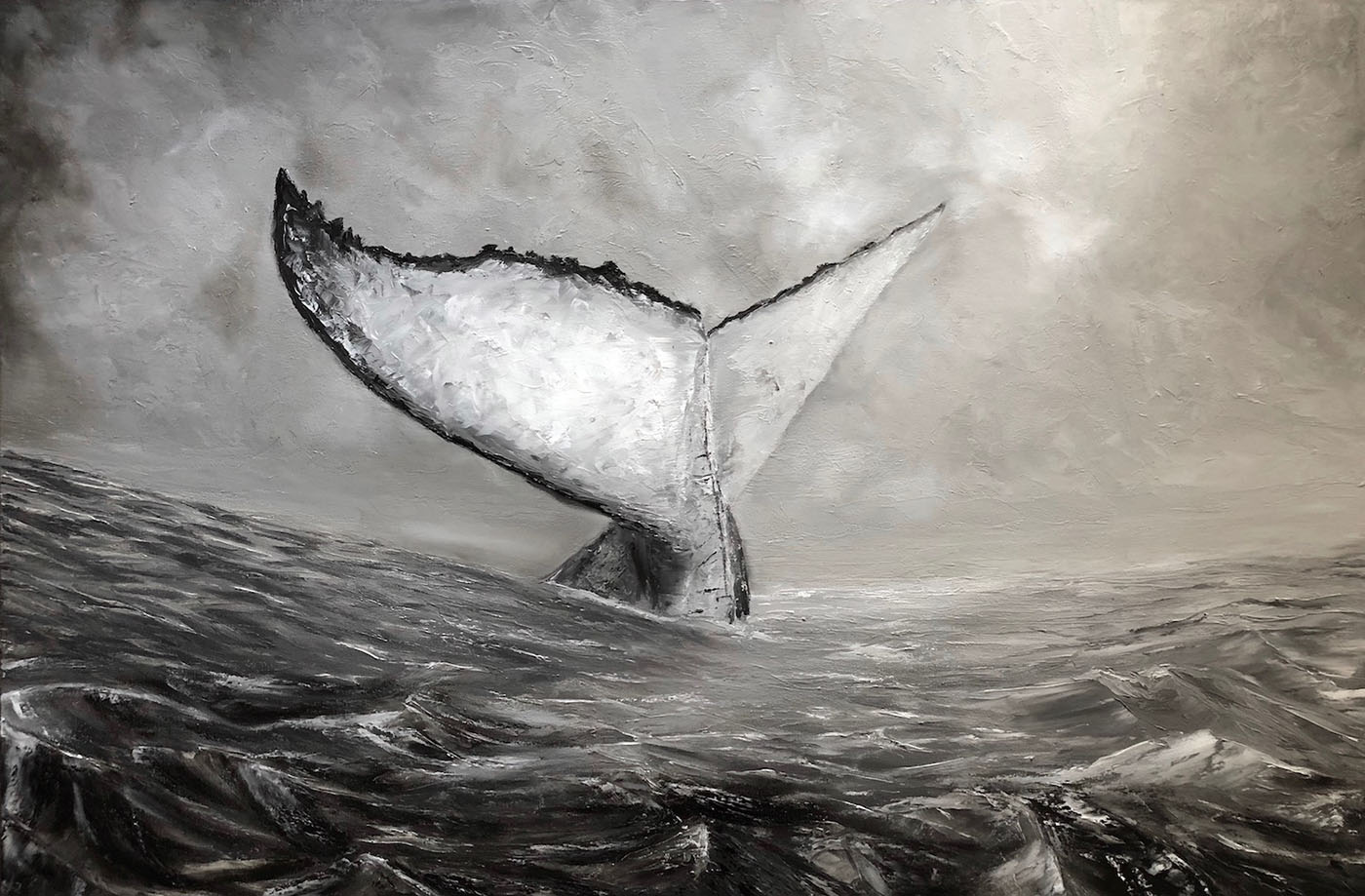
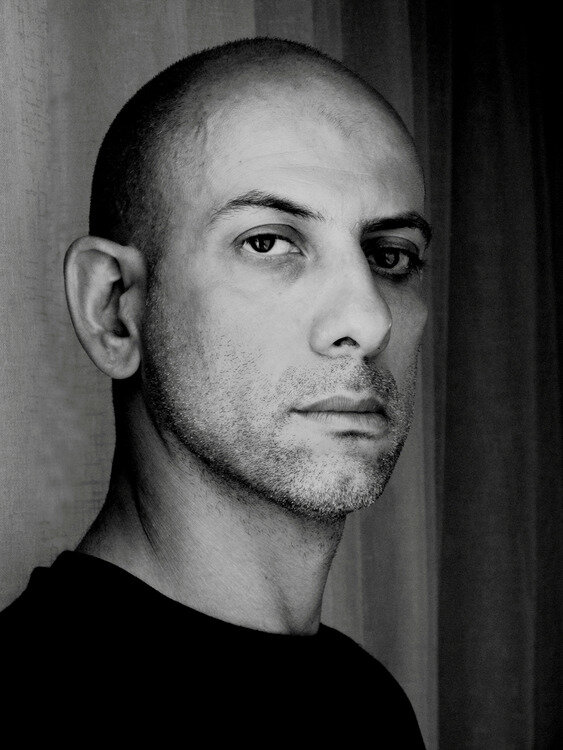




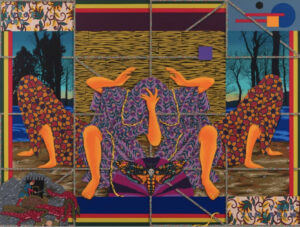

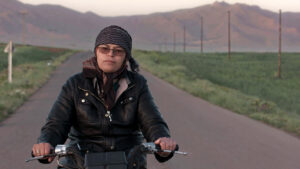


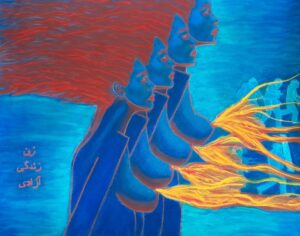





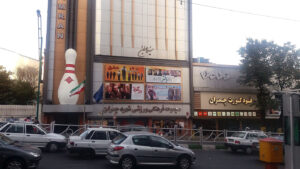

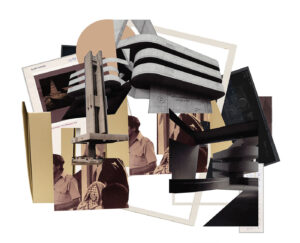

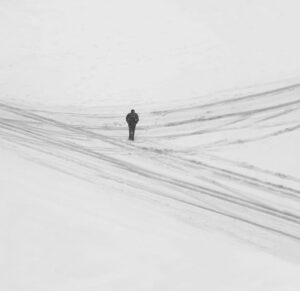
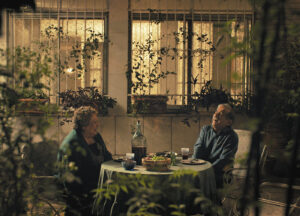
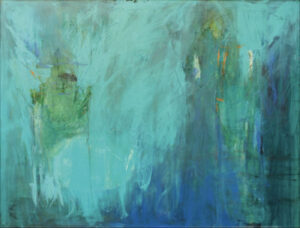


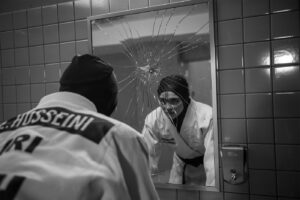






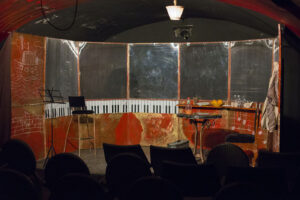


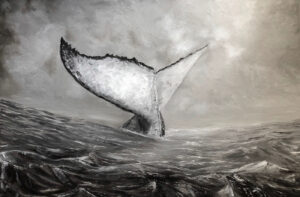



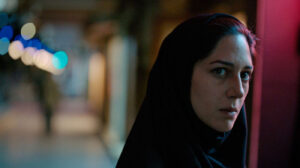


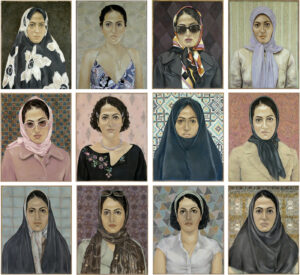


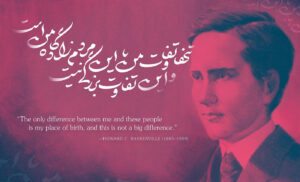

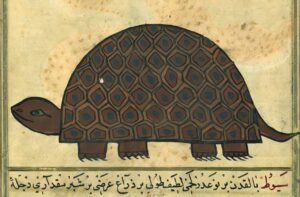


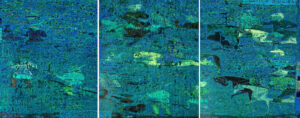

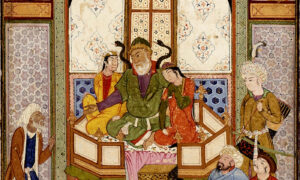

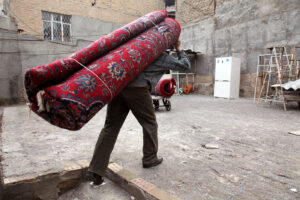







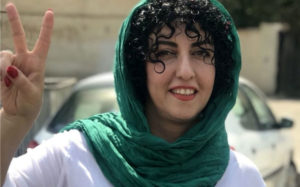

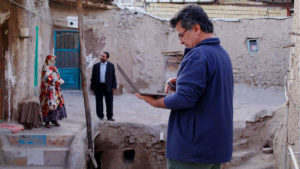



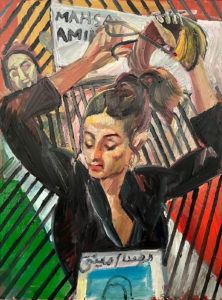

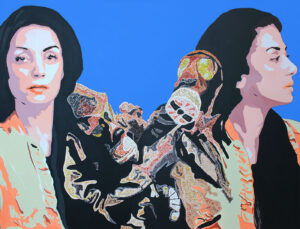

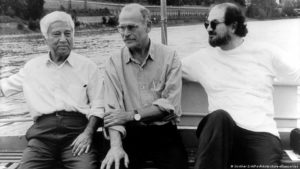


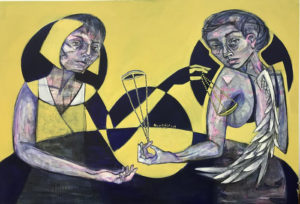


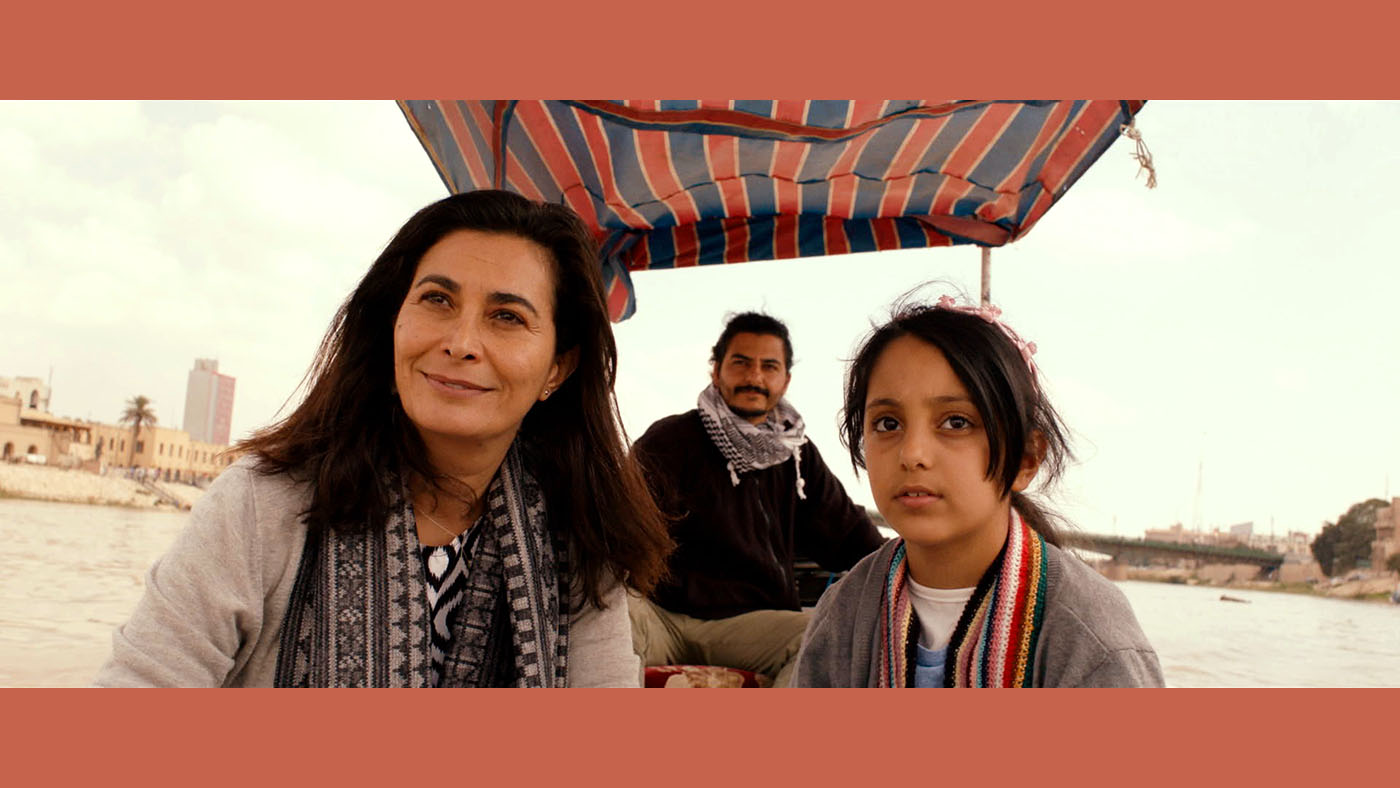
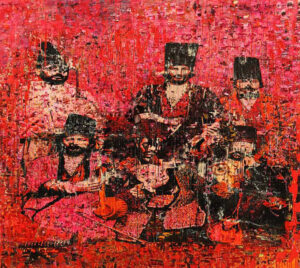






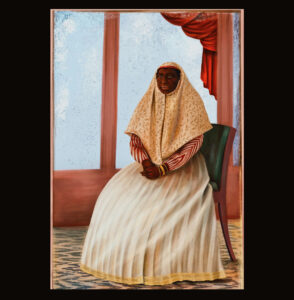





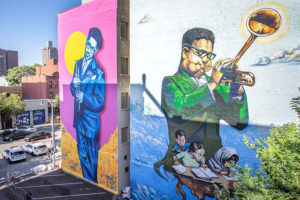


I love Salar Abdoh’s writing. Even though themes of war are heavy, his prose leaves me with a sense of wonder and feeling more alive.